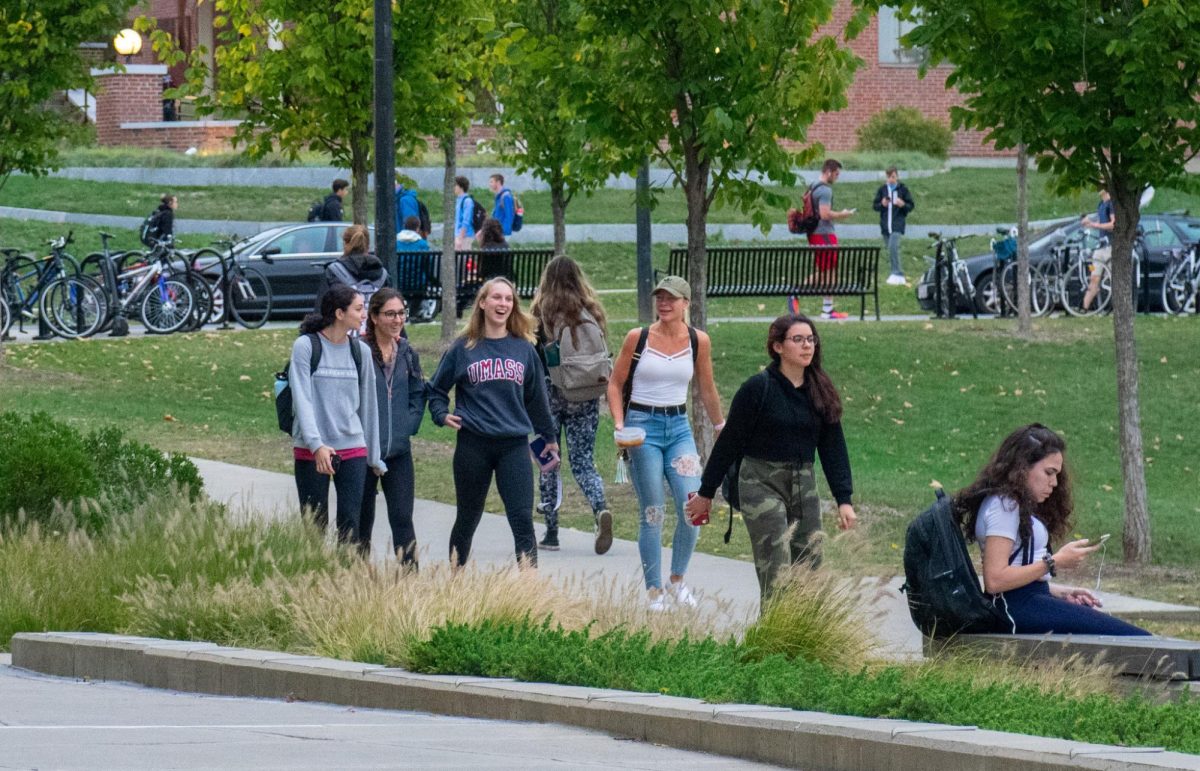Each year, on Nov. 11, the date of their daughter Tara’s birthday, John and Maureen Sheehan hold “Run For Tara,” an event to raise money for eating disorder awareness in memory of Tara’s death from anorexia. Money raised from this event goes towards bringing doctors to schools in order to educate students on eating disorders.
On April 14, 2010, the Sheehan’s brought Dr. Anita Johnston to the University of Massachusetts Amherst to share her specialized knowledge on eating disorders with Dr. Daniel Gerber’s Public Health class.
After working with a student on her eating disorder thesis in the 1980s, Johnston realized there were not many places for people with eating disorders to find help. She soon after created the ‘Ai Pono Eating Disorders Program in Hawaii and joined the clinical therapy staff at the center for eating disorders in Tennessee to work with and treat those who need help. After working with and researching eating disorders, Johnston wrote the book “Eating In the Light of the Moon: How women can transform their relationships with food through myths, metaphors and storytelling.”
Johnston stressed that people who struggle with eating disorders have an uncanny ability to find what is wrong in many situations, even when others do not notice the issue. This translates to eating disorders as women begin to feel there is something wrong with their own body. Once they discover the issue may be their appearance, they begin to diet in order to fix that problem. They focus on food, fat and the number on the scale instead of listening to their bodies’ signals of when they are actually hungry and when they are not.
One metaphor Johnston used from her book to help students understand their hunger scale was that we all have two tanks: Tank A (physical hunger), and Tank B (emotional hunger). In many cases people think they only have one tank, and will fill it completely with either food or emotion – but have not satisfied each hunger completely, or have overindulged one. Johnston stressed the importance of finding the right balance between these tanks by recognizing your physical and emotional cues. Once you realize when you are truly eating because you are satisfying hunger or emotions you can find why you overeat. Johnston said in many cases if you are full and still want to eat sweet food, it is because you feel you are not sweet enough or there is not enough sweetness coming into your life while chocolate shows a craving for romance or sex. When reaching for warm foods like a bowl of soup it is because there is not enough warmth surrounding you. Crunchy and salty foods can mean unexpressed anger and spicy foods show a desire for excitement. Johnston said if you are thinking to yourself, “I want chocolate chip cookies because they are sweet and soft and I want them to be oozy,” it means you want sweetness without frustration. By listening to yourself and the reasons you want to continue to eat when you are full, you can recognize what suppressed emotion you may be feeling.
Another metaphor Johnston used referred to the recovery process of eating disorders. “I truly believe that people can fully recover from an eating disorder” said Johnston, but it is imperative that they seek help, “I have never seen someone recover from an eating disorder without some type of emotional recovery.” It is not expected that someone who is suffering from an eating disorder immediately stop, in fact it is not possible. Johnston used another metaphor from her book, which expresses the need of someone who is suffering to hold on to their eating disorder. Johnston set an image in students’ minds that they are in a river drowning when a log comes along, they grab onto that log and it keeps them from drowning, but it gets to a certain part in the river where they need to let go of the log that had up until that point saved their life. The log is like an eating disorder, people use it in order to suppress and deal with other emotions. If they were to immediately let go of their eating disorders they would be overcome with those emotional issues the eating disorder had helped suppress, just as if you were to let go of the log, you may get halfway to land and begin to drown again. The only way you can deal with both problems is to fix each one a little at a time. Johnston said it is like letting go of the log and just floating until you begin to sink, and the log is still there to grab hold of, eventually you will find yourself treading water and then swimming to land. If you work on the emotional issues that caused the eating disorder, then you can safely leave it without feeling the need to hold on to it.
Although the steps to recovering from an eating disorder may seem difficult and out of reach, it is important to know there are places and people who are ready to help. According to the South Carolina Center for Mental Health, only 1 in 10 women receive treatment for their eating disorder and “the mortality rate associated with anorexia nervosa is 12 times higher than the death rate of all causes of death for females 15 – 24 years old.” If you think you or a friend may have an eating disorder whether it be anorexia, bulimia or simply obsessing over body image (which is an eating disorder) it is crucial to find help.
You can contact Maureen and John Sheehan at 413-527-3305 or [email protected] for referrals to healthcare centers like Walden Center for Eating Disorders in Northampton. You can also contact them to get involved in Run For Tara, which continues to raise awareness for this generally under recognized issue. Also, you can check out www.DrAnitaJohnston.com for more information about her book “Eating in the Light of the Moon.”
Kaitlyn Bigica can be reached at [email protected].






